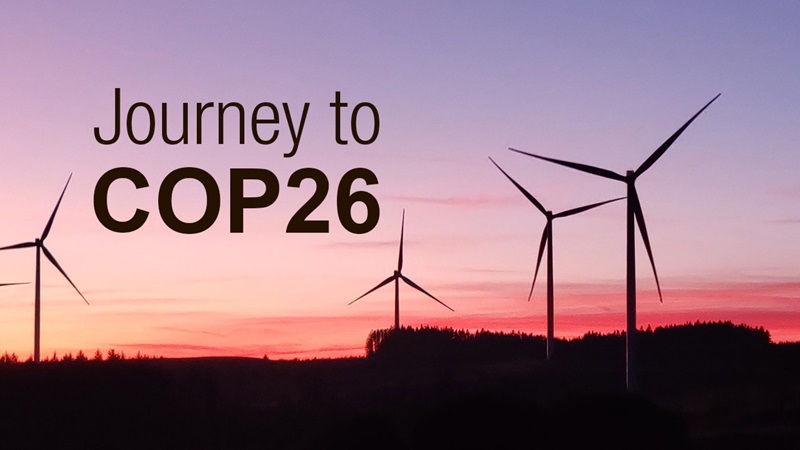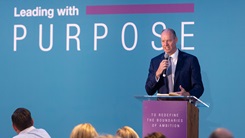The journey to COP26: New research reveals high hopes of UK businesses
68% of UK businesses believe COP26 will positively impact their industry - that’s according to recent research that surveyed over 600 of the country’s businesses. This weekend saw the launch of the long-delayed COP26 summit, the two-week long conference this year taking place in Glasgow, where world leaders will meet to discuss the global fight against climate change. As the headline statistic suggests, businesses too await the outcomes of the summit, with a widespread expectation of significant changes in both policy and approach.
Mace recently spoke to a cross-section of UK businesses about their plans to reduce carbon output. While the full report is set to be published in November, included within were several questions surrounding COP26 and expectations of the event. In this latest article in the Journey to COP26 series, we draw out some of the common hopes found amongst those surveyed.
New collective commitments
A major theme within the responses was the expectation that zero carbon will not only be top of the COP26 agenda, but will finally be treated with the urgency it is due. All of those surveyed agreed that now is the time for action, not words - with hope that COP26 will involve more practical solutions as well as tangible investment.
Taking place in the UK for the very first time, this year’s convention will naturally place its host nation at the centre of the global change programme. One anonymous business expressed hope for a clearer vision of how the UK intends to decarbonise following stricter requirements, which will mean new standards for materials like concrete and guidelines around the distribution and usage of hydrogen.
On a more global scale, there is a belief that we will see a greater commitment from the G7 countries in adopting science-based targets; both leading the way with their own emissions and by investing in developing nations to help theirs. Many businesses were also hopeful of a more coordinated approach between countries, such as aligning policies for fundamental emissions reduction (including upfront operational carbon), decreased reliance on fossil fuels and a true carbon emissions value to work on reducing.
A desire for innovation, particularly within the supply chain, was another commonality among answers, not to mention a willingness to implement frameworks that assist in the remodelling required to alter production methods and infrastructure for new hydrogen technology.
The cost of saving the planet
The cost involved in implementing green solutions has long been a stumbling block in the fight against climate change. As such, it’s no surprise that the survey reveals a widespread hope for more financial support; subsidies that will help bridge the cost gap between current technologies and new greener alternatives as well as stronger financial incentives to help push through the decarbonisation of heavier industries. Similarly, there were also calls for tighter carbon budgets as well as carbon tax and carbon pricing.
Changing the narrative
However, the most overwhelming hope for COP26 is that significant inroads are made in shifting public sentiment towards the climate crisis. Acceptance of the need for change is not enough – both the individual and collective impact of our current trajectory must be made explicit. On a global scale, it must be made clear to the layman and the expert alike, the level of financial and lifestyle sacrifice that must be made if we as a planet are to achieve net zero. In this way, it is essential that COP26 doesn't preach, but leads.
Contact us
-
Mace Media Line
+44 20 3824 3600Email












